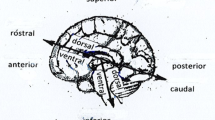
Overview
- Latest research on Decision Making
- Presents a Human Oriented Perspective on Decision Making
- Written by a leading expert in the field
- Includes supplementary material: sn.pub/extras
Part of the book series: Intelligent Systems Reference Library (ISRL, volume 89)
Access this book
Tax calculation will be finalised at checkout
Other ways to access
About this book
This book offers a new perspective on human decision-making by comparing the established methods in decision science with innovative modelling at the level of neurons and neural interactions. The book presents a new generation of computer models, which can predict with astonishing accuracy individual economic choices when people make them by quick intuition rather than by effort. A vision for a new kind of social science is outlined, whereby neural models of emotion and cognition capture the dynamics of socioeconomic systems and virtual social networks. The exposition is approachable by experts as well as by advanced students. The author is an Associate Professor of Decision Science with a doctorate in Computational Neuroscience, and a former software consultant to banks in the City of London.
Similar content being viewed by others
Keywords
Table of contents (7 chapters)
-
Front Matter
-
Subjective Utility
-
Front Matter
-
-
Psychological Insights
-
Front Matter
-
-
Intuition and Decisions
-
Front Matter
-
-
Back Matter
Authors and Affiliations
Bibliographic Information
Book Title: Decision Science: A Human-Oriented Perspective
Authors: George Mengov
Series Title: Intelligent Systems Reference Library
DOI: https://doi.org/10.1007/978-3-662-47122-7
Publisher: Springer Berlin, Heidelberg
eBook Packages: Engineering, Engineering (R0)
Copyright Information: Springer-Verlag Berlin Heidelberg 2015
Hardcover ISBN: 978-3-662-47121-0Published: 29 May 2015
Softcover ISBN: 978-3-662-50952-4Published: 29 October 2016
eBook ISBN: 978-3-662-47122-7Published: 15 May 2015
Series ISSN: 1868-4394
Series E-ISSN: 1868-4408
Edition Number: 1
Number of Pages: XVIII, 160
Number of Illustrations: 33 b/w illustrations
Topics: Computational Intelligence, Artificial Intelligence, Operations Research/Decision Theory



